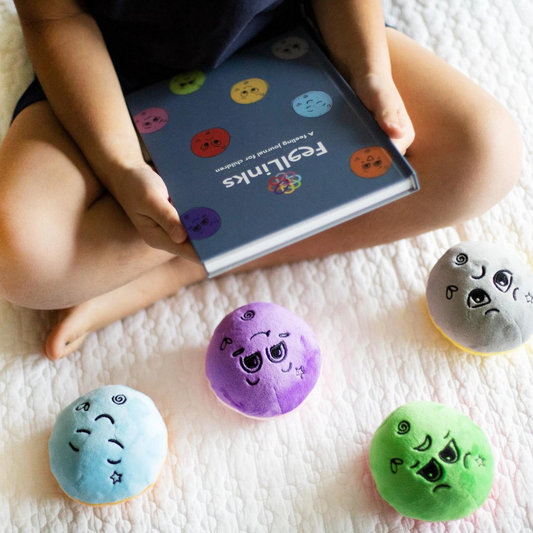8 Key Strategies to Support the Mental and Emotional Well-Being of Children
Share

Supporting the mental and emotional well-being of children is crucial for their overall development and happiness. Here are 8 key strategies parents and caretakers can use to support this critical development.
1. Open Communication: Encourage children to express their feelings and thoughts openly. Create a safe and non-judgmental space where they feel comfortable sharing their experiences. Regularly check-in with them about their day and listen actively. Put all distractions aside and tune in. Or, play a game or do an activity, this can often spark open communication.
2. Teach Emotional Regulation: Help children understand, label, express and regulate their emotions. Teaching them healthy ways to cope with tough emotions, such as deep breathing techniques, mindfulness exercises, playing/listening to music, and creative activities like journaling, drawing or writing.
3. Promote Healthy Relationships: Ensure children have positive social interactions with peers and adults. Encourage friendships and provide opportunities for socializing through playdates, extracurricular activities, and community events. Model respectful and empathetic behavior in your own interactions with others.
4. Establish Routines: Children thrive on routine, predictability and boundaries. Consistent schedules around wake up, meals, homework, baths/showers, and bedtime, help create an important sense of security. During times of change or stress, maintaining routines can provide comfort.
5. Set Boundaries: Setting limits help children feel safe and develop self-discipline. As boundaries are set children better understand your family values. Be sure to set clear expectation and discuss consequences when boundaries are broken. As kids get older, boundaries for social interactions become quite important. They need to learn to set boundaries for themselves and respect others boundaries. This takes empathy — being able to recognize what they themselves want and need and others wants and needs.
6. Encourage Physical Activity: Regular physical activity is linked to improved mood and mental health. Encourage children to engage in sports, outdoor play, a hike/walk, or simple exercises at home. Physical activity can help reduce stress and anxiety.
7. Monitor and Limit Screen Time: Excessive screen time can have a negative impact on mental health. Set clear boundaries on the use of digital devices - what they can and cannot do and how long they are allowed to engage online. Ensure children engage in a variety of offline activities.
8. Be a Role Model: Demonstrate healthy emotional habits and coping strategies. Children learn by observing the adults in their lives, so it's important to practice self-care, managing stress, and expressing your own feelings with accuracy.
***If you notice signs of anxiety, depression, or other mental health issues, seek help from a mental health professional. Early intervention can make a significant difference.
By incorporating the strategies above, parents and caregivers can create a supportive environment that nurtures the mental and emotional well-being of their children, helping them grow into resilient and confident individuals.





